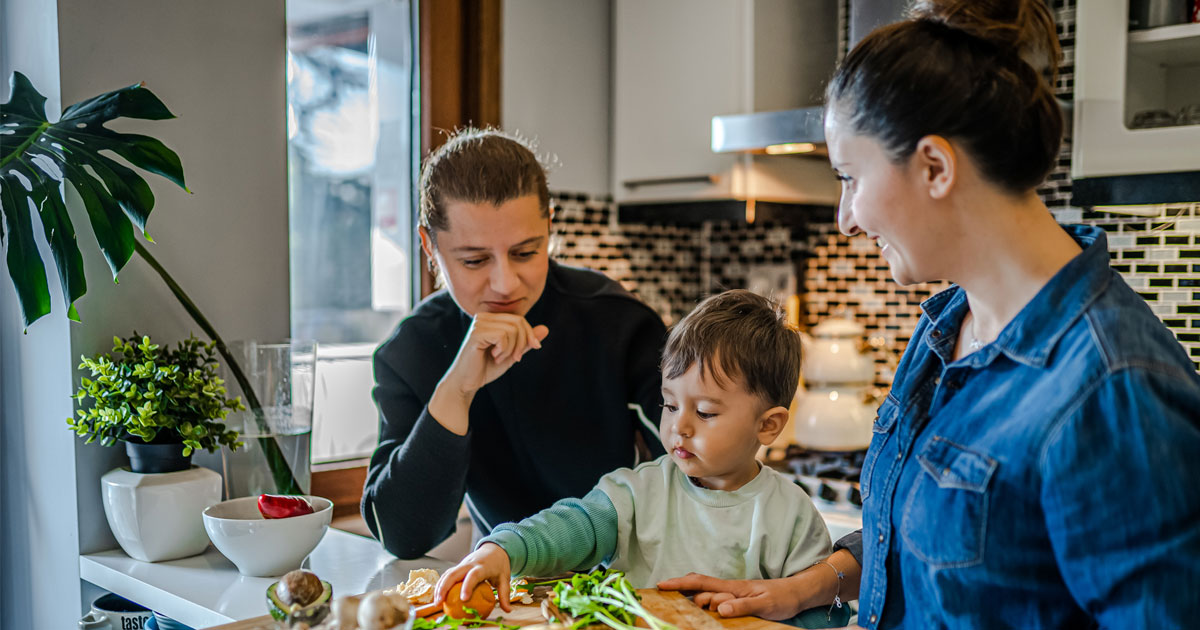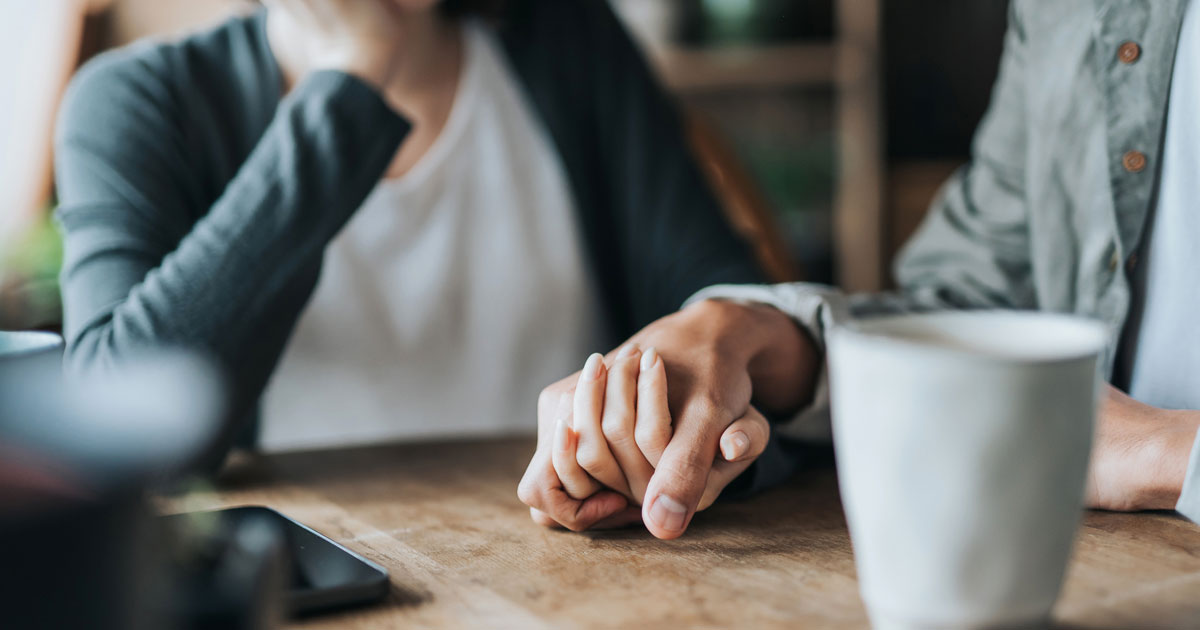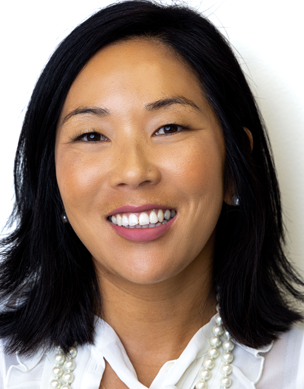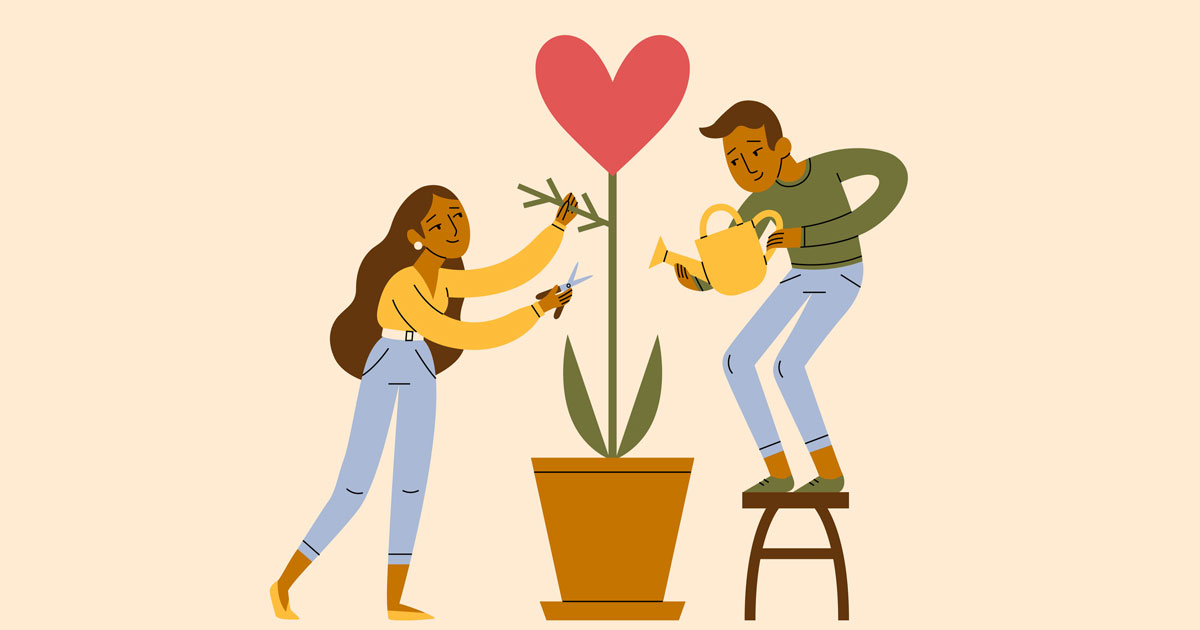It can be challenging for anyone struggling with substance use disorder (SUD) to juggle recovering from addiction and relationships. Often, relationships are worth the time and effort it takes to address them during recovery; other times, they are not. A healthy relationship can be a nurturing place that supports recovery from SUD. Still, all too often, the relationship has issues that may have existed before recovery as well as those created by the SUD itself.
In order to restore healthy relationships so that they can have a positive impact on your recovery, it’s essential to address the way they’ve been affected by both SUD and recovery. In other words, relationship issues must be treated as you complete your treatment for SUD. Some relationship problems that should be addressed alongside SUD treatment include the following types of issues:
- Those problems that existed before the SUD, either individually or within the relationship
- Those problems that developed during your struggle with SUD
- Broken trust which occurred because of behavior associated with the SUD
Can a Relationship Survive Addiction?
If you’re looking for an answer to the question, “Can a relationship survive addiction,” the answer is a definitive “Yes.” However, it’s important to know that while relationships can survive SUD, not all relationships will. The outcome is determined by the details of the situation, including the conditions endured by both sides, the people in the relationship, and the amount of effort they are willing to put into recovery and healing the relationship.
Sometimes, the way addiction and relationships impact one another is not good; some relationships serve more to contribute to addiction than to provide the necessary support to address it. These “toxic” relationships should not be continued during treatment and throughout recovery from SUD. Even without substance use, toxic relationships are detrimental to both individuals. That’s why it is important to learn to recognize toxic relationships during treatment for SUD so that they can be avoided as recovery progresses.
How Substance Use Disorder Affects Relationships
To understand how a non-toxic relationship can persist and even thrive during recovery, you should first understand how the disease affects relationships. With this understanding, both parties can determine what happened, process it together, and move forward. It is important to note that psychologists believe it is not healthy to continuously revisit the past, especially in recovery. However, there is a place for learning from the past so the same issues don’t recur.
One common problem in relationships between people with SUD and their loved ones is that lies become increasingly frequent to protect the substance use, deny the severity of the problem, or even keep the relationship “civil.” Unfortunately, this broken trust can result in hurt feelings and anxiety for both sides of the relationship.
The partner with SUD may lie to diminish the severity of their substance use or about where they’ve been. They may use money from joint accounts without a practical explanation of what they spent it on or hide evidence of use only for it to be discovered later. These lies break down trust over time. Gradually, trust issues wear away at the relationship’s stability.
As a result of diminished trust, people who are in a relationship affected by SUD are often increasingly unhappy. As substance use increases, the quality time the parties can spend together decreases. As the SUD grows, so does the emotional distance between the two participants. Time spent together is often spent arguing about the state of the relationship or SUD. Unfortunately, this arguing and distance can contribute to substance use, as one partner turns to a substance to numb the pain and stress of the relationship.
This cycle becomes increasingly difficult to break as substance use disorder progresses. Many people continue the downward spiral for much too long in an effort to “save” a relationship that is only salvageable once SUD is no longer a factor.
Some signs substance use disorder has negatively affected the relationship include the following:
- Arguments are about substance use or related issues, such as not returning home, spending too much money on substance use, and not taking care of family and home responsibilities due to substance use.
- One person claims the reason they use substances is to seek relief from the stress caused by arguments or other aspects of the relationship.
- One person covers for the other when they have been using the substance, such as lying to their boss, friends, or family.
- Using substances has become one of the only things the two people in the relationship enjoy doing together.
- Domestic violence or assault occurs when one or both people are under the influence.
- One or both people must be using a substance to talk about the relationship, be affectionate, or be intimate.
- The relationship or family is isolated from friends and family because they value hiding the SUD over everything else.
Repairing Relationships Broken by Addiction

When both people agree to receive help with SUD and the relationship, there are some key steps that will increase their chances of success in both areas. While many SUD treatment programs already incorporate partners and families because it is beneficial to treatment, it is also important to treat the relationship itself.
Here are a few steps to get started:
Realize That Issues Don’t Only Pertain to Substance Use
To begin, it’s important to understand a hard truth about relationships and addiction: underlying relationship problems don’t go away just because substance use stops. This is true even if the issues developed because of the SUD. As mentioned, problems that occur alongside SUD frequently exist due to a breakdown of trust. That won’t be repaired just because substance use has ceased because trust is very easily lost but very hard to rebuild.
Create Goals
Next, it is important to make short-term goals when trying to heal a relationship affected by SUD. Repairing and maintaining a relationship takes hard work and dedication from both people, even outside of SUD. When SUD is involved, it is important to determine the things you want to address, establish goals, and decide what both people could do to help the relationship reach those goals.
Receive Treatment
Both people should receive professional treatment, not just the person with SUD. The focus should be on rebuilding trust and communication in the relationship. It is important to set boundaries, communicate about what is and isn’t acceptable behavior, and the actions both are willing to take if boundaries are crossed.
Additionally, both partners should invest in their own well-being and work towards resolving any underlying issues in the relationship that may not be conducive to recovery. For most relationships, this occurs in a combination of individual and couples or relationship therapy.
Get Support for Both Partners
It is also beneficial for both individuals to participate in a supportive community that supplies addiction recovery resources to deal with any personal issues they have developed. For the person with SUD, this may involve 12-step programs, rehab alumni programs, or even peer groups. For the other person in the relationship, groups like Al Anon, Recovering Couples Anonymous (RCA), and organizations like the American Association for Marriage and Family Therapy (AAMFT) offer resources and/or group encouragement for those in relationships that are affected by SUD.
Repairing Relationships and Addiction Recovery

A supportive and caring relationship can help those recovering from SUD to maintain a healthy and lasting recovery. Therefore, it is imperative to resolve the issues in the relationship so they do not continue to affect recovery. This is true of all relationships, whether romantic, friendship, or family oriented.
In addition, the family unit is the primary source of socialization, attachment, and nurturing. It is important for SUD recovery to maintain a healthy home and family environment. This positive socialization, attachment, and nurturing are essential to living a long, sober, and productive life free of substance use.
Toxic Relationships
Of course, sometimes staying in a relationship is not in the best interest of one or both individuals. As mentioned earlier, the term “toxic relationship” is often used to describe unhealthy and even damaging relationships. Toxic relationships should be avoided for many reasons, one being the reduced chances of success in recovering from SUD. Though it may be hard to dissolve a relationship you value, it is better in the long run to break ties from a toxic relationship.
So how do you know when to work on a relationship damaged by SUD and when to let it go? The first step is recognizing toxic relationships. Toxic relationships are not favorable to someone in SUD recovery because they create an environment where one or both people are likely to return to substance misuse once again. This not only causes further issues within the relationship but also presents a significant roadblock to recovery.
There are two main styles of toxic relationships associated with the SUD cycle: enabling and insecure attachment.
Enabling
Enabling as it pertains to SUD occurs when someone becomes preoccupied with helping a loved one with SUD. They wholeheartedly believe they are helping their loved one, but they are instead allowing the disease to continue to grow by tolerating, supporting, and assisting them in SUD behavior.
Enabling can consist of obvious acts like giving a person with SUD money to purchase the substance, but it can also occur in less obvious ways like giving support, providing housing or transportation, or helping the person avoid the consequences of their actions. Enabling can occur within a romantic relationship, a family relationship, or a friendship.
Insecure Attachment
This extremely broad term includes any attachment other than a secure attachment between someone with SUD and a loved one. A secure attachment style exists between healthy people who can regulate their emotions and the ability to seek emotional support if they are having difficulty regulating.
Insecure attachments do not fare well for sobriety and long-term recovery, and they should be recognized as relationships to walk away from for individuals serious about maintaining recovery. Learning to recognize these relationships and then break away from them is often a difficult part of the process on the road to recovery, but it is essential to a successful recovery.
Signs of Toxic Relationships
The following are signs that your relationship may be toxic:
- When one or both individuals in a relationship experience constant jealousy, it is a sign that trust has been irrevocably broken. This is often a result of SUD and is an indicator of toxic relationships because suspicion and mistrust are not conducive to a healthy relationship and long-term recovery.
- The inability of one or both partners to regulate emotions is a red flag of a toxic relationship. Unfortunately, SUD can intensify irritability and moodiness and increase the chance of violence.
- If one person is using manipulative tactics to exert control over their partner’s actions, emotions, and decisions, the relationship is likely toxic with or without substance use.
- Healthy boundaries are essential to a secure attachment style in a relationship. If one person consistently violates those boundaries to fulfill their own needs, it is toxic behavior.
- Dismissing a partner’s emotions, belittling them, or gaslighting them is a key sign a toxic relationship will not improve even during recovery.
- If one person in a relationship uses sexual, verbal, or physical force to the point of abuse, the relationship is toxic.
- A relationship should be a safe place for both people. If one or both people feel unsafe, this can have a detrimental impact on mental health, and the relationship should be dissolved.
There Is Hope for Repairing Your Relationships

The SUD cycle can seem impossible for individuals who suffer from substance use disorders, but recovery is possible with a quality recovery program. Similarly, tackling the additional work to repair a relationship destroyed by your SUD may seem unfathomable, but it is doable with the help of professionals as well as the resources and tools you’ve developed in treatment. Best of all, having a healed and supportive family or relationship to come home to at the end of every day will make maintaining long-term recovery more attainable.
If you’d like more information and resources about how to begin recovery and repair a relationship that has been affected by SUD, Recovery Cove can help. Learn more about our recovery treatment program in Pennsylvania.
Sources

Clinical Director
Christine Todd is a Licensed Professional Counselor and an Advanced Certified Drug and Alcohol Counselor who enjoys working directly with a population that struggles with addiction and mental health disorders. Christine brings many years of clinical experience to the team at Recovery Cove, where she is currently the Clinical Director. In her role, she oversees the clinical department as a leader, educator and mentor, designing programming and protocols for a diverse client population.






